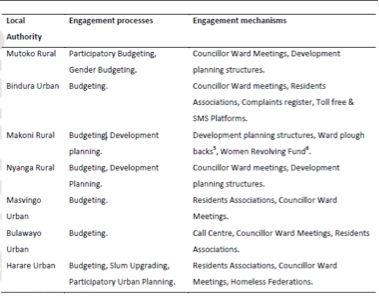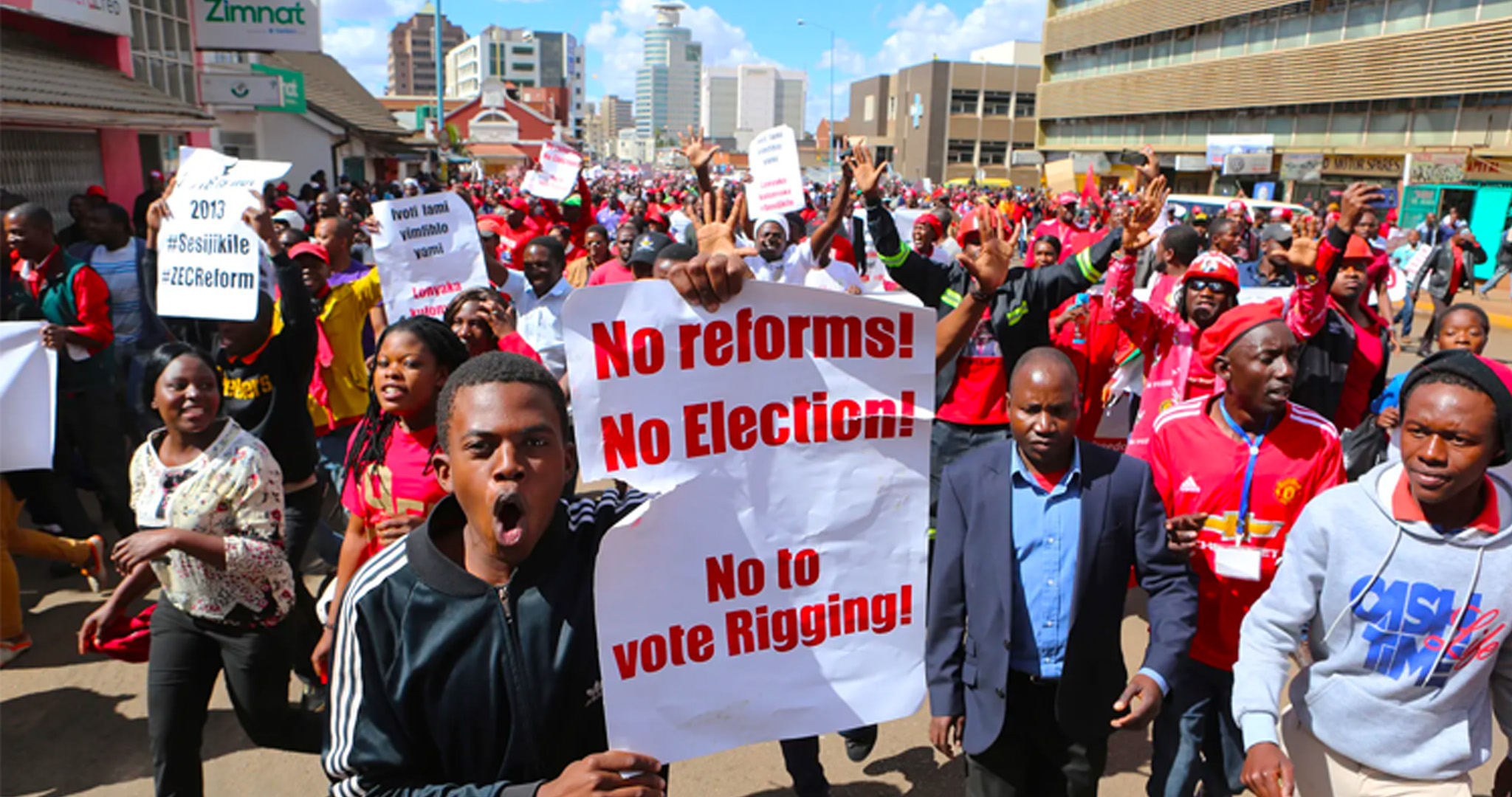Democracy depends on increasing the voice of local communities, respecting the rule of law, promoting equity and justice, and the participation of the beneficiary communities in decision-making. Broad participation has been identified as a potential antidote to the unfettered expansion of expert-based approaches that exclude citizens. Effective participation depends on the recognition and affirmation of the right to engage. In many instances, we loosely refer to those who are able or aspire to effectively participate in public problems as citizens. For this blog series, I consider a citizen as one who shares in governing and being governed in the best state, he/she is the best able one and chooses to be governed and govern with a view to the life of excellence (adapted from Everson 1988- see also Murisa, 2020). Traditionally citizenship has been viewed as relating to belonging to a state and enjoying its rights while simultaneously fulfilling obligations required by that state (Turner,1997; Masunungure and Koga, 2013). In this discussion, I focus on citizenship as a verb entailing the actions taken by citizens individually and collectively to improve the public space. Citizenship is the bedrock against which individuals can claim services from their government or seek to participate in national processes, including for or being voted into office (Masunungure and Koga, 2013).
The Zimbabwean Constitution affirms broad-based participation in national processes as an indivisible right. Section 13 (2) of the constitution obligates the Government to
"…involve the people in the formulation and implementation of development plans and programs that affect them". Citizens acknowledge the need for their engagement with officeholders but indicate facing multi-layered challenges in seeking that engagement (International Republican Institute 2015, Ndoma and Kokera, 2016).
As individuals become more acquainted with the democratic process they gain more confidence, which makes them more effective advocates for reforms to specific policies.
Typically, citizens participate in the public space in different ways, including engaging in forms of solidarity towards one another, protesting unjust/unfair decisions, coproduction with formal organizations, and political decision-making (voting). The most common or popular forms of civic participation have been through public protests (see Murisa, 2022: 94-109). Yet there are several instances of other effective citizen-led/inspired participation. Zimbabwe has normative frameworks for citizen participation for the individual to influence practices and policies both at local and central government levels. These include budget consultations, participating in local government elections, being a part of consultative forums, public hearings, councils' open meetings, the Village Development Committee (VIDCO), Ward Development Committee, Rural District Development Committee, and Provincial Development Committee (Chikerema, 2013:88-89).

Figure 2: Citizen engagement processes and mechanisms Source: Muchadenyika, 2017
However, effective citizenship or participation does not happen by itself. Citizens may feel powerless or do not see the need to exercise control of their communities and national future. Furthermore, effective citizenship may be constrained when officeholders within government and formal non-state organizations create the 'impression' of participation when the end goal has already been established. Several formalized organizations working within the civil society space have carved a niche as an alternative to an ineffective and corrupt state and a rapacious business sector and have positioned themselves as the unelected and un-legitimized voice of the citizens. They have not necessarily invested in developing the voices of the poor and bonds of trust that can be used to unleash community participation in local and national processes outside of the framework of the scope of a defined project. Participation of citizens is an ideal that many official processes have failed to achieve and instead, they have created 'invited' spaces which in effect serve to constrain rather than unleash the civic capacities of citizens. Participation theorists such as Cornwall (2008), Gaventa (1993, 2005), and Chambers (1983) have contributed important insights to the dilemmas of effective participation. Eversole (2010:37) captures this dilemma in a very precise way when she observes that:
…the problem of participation is not that participation is impossible to achieve; but rather, that it is impossible to achieve for others… Rather, the challenge of participation is about how to become participants in our rights: choosing to move across institutional and knowledge terrains to create new spaces for communities and organizations to 'participate' together.
Many existing initiatives of participation are characterised by 'invited' spaces and managed projects instead of what Cornwall (2008) terms spaces that people create for themselves. Gaventa (2005) weighs in by suggesting that for there to be effective participation there is a need to work on participation from both sides of the equation: that is, to increase both the participation of communities and the responsiveness of government institutions. The challenge for Zimbabwe and indeed other emerging democracies is to remake participation through the reframing of interactions amongst communities, professionals, and institutions into a truly participatory space. A supply of good institutions and organizations is not enough. To create them by legislative edict does not make them work. Somehow people must be empowered to insist on good governance according to their terms. But wanting it does not make it happen. Institutions will work when a public covenant builds around them and demands that they work. A civic compact between formally established organizations and communities is what makes it sustainable, and it should begin at the level of communities. Only then can it be usefully facilitated by the well-placed civic investments of philanthropic donors. Civic values must emerge organically from the public life of communities.
Bibliography:
Aristotle. (trans. 1932). Politics (H. Rackham, Trans.). Harvard University Press
Chambers, R. (1983). Rural development: Putting the last first. Longman.
Chikerema, A. F. (2013). Citizen participation and local democracy in Zimbabwean local government system. International Journal of Humanities and Social Science, 3(11), 88-99.
Cornwall, A. (2008). Unpacking 'participation': models, meanings, and practices. Community Development Journal, 43(3), 269-2831
Gaventa, J. (1993). The powerful, the powerless, and the experts: Knowledge struggles in an information age. In P. Park, M. Brydon-Miller, B. Hall, & T. Jackson (Eds.), Voices of change: Participatory research in the United States and Canada (pp. 21-40). Bergin & Garvey.
Muchadenyika, D. (2017). Citizen engagement processes and mechanisms. In R. M. Chakaipa & S. Mudimu (Eds.), Local government reform in Zimbabwe: A policy dialogue (pp. 133-152). African Books Collective
Murisa, T. (2020) Whose Development: Examining the Extent to Which Development Actors Align with Communities.
Murisa, T. (2022). Rethinking Citizens and Democracy. SIVIO Publishing. Harare.
Ndoma, J., & Kokera, H. (2016). The role of the international observer in the consolidation of democracy in Nigeria: A case of 2015 general elections. European Journal of Political Science Studies, 4(3), 34-80. Retrieved from EJPS website.
Turner, B. S., Masunungure, E. V., & Koga, H. (2013). Citizenship in Africa: The politics of belonging. Africa Development, 38(3), 1-18.-18.
